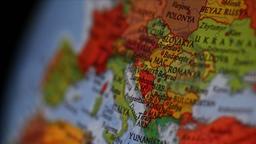We are going through a period in which the Middle East is being thrown off-balance. Regimes either have changed or are being shaken in Arab countries. Turkey is following these developments closely as due to the intensified integration with the Middle Eastern economy in the recent period, the developments in the region concern its economic policy as well as foreign policy.
In the face of this bombardment of information and evaluation, Palestine, the most critical part of the region, has not received the attention it deserves on Turkey's agenda. Demands for change that originated in Tunisia and spread to the Egypt inevitably will affect Palestine. This critical turning point with which the region is faced offers an important opportunity for Turkey to revise its policy on Palestine. Although it is to a large extent discussed in ideological terms, Palestine is an important case where the economic and foreign policies of Turkey coincide. If it adopted a policy that appropriately combined foreign policy with economic priorities, Turkey could become an international actor able to make the largest contribution to the solution of the Palestine problem. This could serve as a concrete demonstration of the recently pronounced "rapidly increasing soft power across the Middle East" that also could be used as a tool of change. How? Let me begin with the differentiated position of Palestine.
Did you know that the average Palestinian is better educated than the average Turk? The estimated time at school is 14 years in Palestine and 12 years in Turkey. Palestine therefore is one of the rare regions in the Middle East where a well-educated population and the potential for industrialization coexist.[1] The main issue for Palestine today is building a new, strong state as much as the termination of the blockade of Gaza. Peace and stability in the Middle East depends on the coexistence of a two-state structure, that is, of Israel and Palestine. Along with an efficient state-building process, Palestine needs a self-sufficient economy, one that is less dependent on foreign aid, integrated into the world economy and that can generate employment is of vital importance for the solution of the Palestine problem.
Turkey's new policy on Palestine must focus on three main pillars that take into account the needs and the particular developments in this new period: the acceleration of economic development, the state-building process, and the political reinforcement of the peace process. Should these three dimensions be managed together, Turkey could become an effective actor able to initiate a new era in the Middle East where demands for change are raised.
What can Turkey's role be in the economic development of Palestine?
Turkey can take the most rapid action in the economic development of Palestine, which is in need of development in many sectors including infrastructure, housing, transportation, education and health to respond to the needs of the rapidly growing population. The Turkish firms that are the most important economic actors in the region for private sector development and industrialization have the potential to turn Palestine into a center of production. The current state in the region might not allow Turkey to take these steps consecutively, but I am of the opinion that the Palestinian problem will not remain as it is forever. If we had some ideas about the future shape of the Palestinian state, it would be easier to take steps tailored for economic development. This is exactly why looking at the map below excites me.
Map: Potential Future Structure of the Palestinian State
Source: "The Arc: A Formal Structure for a Palestinian State" (RAND Corporation, 2007)

This map was taken from a 2007 study by the US-based think-tank RAND. It shows the possible infrastructure and upper structure, the way to connect cities and to connect with the world after the establishment of the Palestinian state. First, all of the cities of Palestine are integrated with each other through an arch-like line and the country is connected to the world with a highway-railway line to be built between Gaza and the West Bank with a port and airport in Gaza. Moreover, travelling 1.5 hours from Gaza, you can reach Jenin in the north of the West Bank and then to Haifa Port, Beirut or to Damascus and then to Turkey (of course this is only a dream for now. But a century ago the tunnel between the Britain and France was also a dream!). Turkey needs to add a similar future vision to its policy on Palestine. If we imagine the future structure of the Palestinian state in advance and adopt economic aid and cooperation strategies in line with this vision, we can make a rare contribution to Palestine.
In the field of economy, we also must discuss a strategic vision that will anchor Palestine to Turkey's economy in order to ensure rapid growth for the Palestinian economy. With the Free Trade Agreements the geographic advantages Palestine has in accessing the US market as well as to Gulf countries can improve the attractiveness of the country for Turkish firms. Furthermore, the generosity of international organizations toward Palestine can be turned into substantial incentives and cost-cutting advantages for firms. A new policy on Palestine that facilitates doing business, encourages industrial investments and supports mergers and acquisitions can break new grounds for economic development in Palestine. Perhaps Turkey can compensate for the mistakes of other countries that tend to create a Northern Cyprus out of Palestine with respect to economic development, by enabling a Palestine that resembles Singapore.
What can Turkey do in the state-building process in Palestine?
The second pillar of Turkey's policy on Palestine must concentrate on the state-building process. Palestine has been carrying out serious steps for the building of the Palestinian state. These have been neglected by Turkey. Our Palestinian brothers are trying to achieve the capacity to run a state. This inevitably is a difficult process for a society that has never run its own state. Palestinian Prime Minister Salam Fayyad declared a highly assertive state-building process in August 2009. They targeted to complete the institutional infrastructure in two years. The main objective was to achieve a structure that enables national unity in Gaza and the West Bank and ends the Israeli occupation, with East Jerusalem as the capital city.
Evidently, it has not been easy to meet this target and the time frame of the program will be extended most probably. However, what is more important is that Palestine has never had such an appetite for institutional development before. The current state of affairs is quite promising for the future. In its new policy on Palestine, Turkey has to adopt a more proactive approach and support the state-building process. At this point the priority must definitely be to transfer the experiences of Turkish public institutions to Palestinian counterparts through concrete programs. For instance, Turkey could play an active role in the review of the Palestinian legal system, which currently is a mixture of different legal systems. Turkey, also taking the lessons learned in the EU accession process into account, could make great contributions to the introduction of administrative measures that will have rapid repercussions on economic development. On the other hand, Turkey, which has experience in managing mass internal migration, could become a creative guiding actor for the integration of refugees, which is one of the most critical problems of Palestine.
How can Turkey strengthen the peace-building process?
The third pillar of Turkey's policy on Palestine must focus on the acceleration and strengthening of the peace process. Indeed, since Turkey's Palestine policy traditionally and exclusively has focused on this issue, I have nothing new to say about this pillar. But Turkey can become an even more active actor in the peace process by adopting an objective approach with respect to Palestine's domestic policy and by taking a stand against the Israeli settlements in the West Bank as well as against the Israeli invasion in Gaza.
If Turkey seeks peace in the Middle East and wants to become a more active actor in the region, we all must make room in our minds for the "new" issues listed above. Turkey can achieve a certain position as a regional actor by focusing solely on Gaza and trying to legitimize Hamas. In this rapidly changing atmosphere across the Middle East, it is of critical importance for Turkey to bring new matters to the table.
Pursuing political issues not backed by the priorities of accelerating economic development and facilitating the state-building process in Palestine harms Turkey's soft power and its effectiveness in the Middle East. Turkey has a great opportunity to open a new page in the Middle East in this new era. This euphonious discourse must be supported with concrete policies and implementation capacity. Palestine can be a suitable starting point in this regard. Turkey's priority must be to look ahead rather than back and to help Palestine design its future.
[1] Let me summarize the key characteristics of Palestine for those who are not familiar with the region. Palestine is composed of two separate pieces of land: The West Bank, in the shape of a kidney, and Gaza, in the shape of a thin strip. The West Bank has a land area of 5800 km2, equal to that of Istanbul. Gaza has a land area of 360 km2, equal to that of Yalova. The distance between the West Bank and Gaza is approximately equal to that between Istanbul and Yalova. In the West Bank and Gaza strip 2.5 million and 1.6 million Palestinians live, respectively. 2 million additional Palestinians are refugees in other countries, mainly in Lebanon and Jordan. Palestinian territory has under Israel occupation since 1967. The occupation of Gaza terminated in 2005 with the retraction policy Israel initiated under Arial Sharon. The occupation of the West Bank, however, continues with the presence of a number of Israeli settlements in the territory. In the West Bank there are a total of 121 Israeli settlements that house 300,0000 people. Furthermore, 184,000 Israelis live in East Jerusalem, which the Palestinians wish to make the capital city of the future Palestinian State. Palestine cannot exist as a state since the Israeli occupation continues and territorial integrity cannot be achieved. A structure called the "Palestinian National Authority" governs a small territory in the West Bank. Gaza is governed by Hamas with dominant Islamist tendencies and the West Bank by Al-Fatih, with more secular tendencies. The connection of Gaza and the West Bank with the world is completely under the initiative of Israel. The plight caused by the blockade policy against Gaza is well-known.




